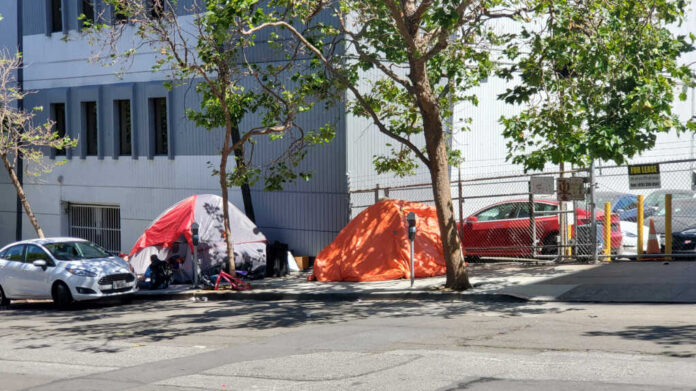
California reported that it could not account for up to $24 billion in spending intended to help the state’s homeless population, sparking considerable criticism from conservatives. The news comes as the state has the largest homeless population despite spending the most money on the issue of any state in the country.
The state announced that it could not determine whether $24 billion in funding related to homelessness actually aided those it was meant for. The state auditor’s office stated that the homelessness situation did not improve in the state despite the funding.
One state agency stopped tracking results in 2021 among other issues.
Following the audit results, Los Angeles reported that it also had difficulty tracking its homeless funding and hired an outside firm to audit its books.
California’s Homeless-Industrial Complex Exposed
“California has allocated $24 billion over the past five years to address homelessness, but no one is quite sure how that vast sum of taxpayer money has been spent or whether it’s making any difference.”https://t.co/14kp4yzUwK
— Larry Elder (@larryelder) April 13, 2024
Leading California Republicans called for a further investigation after the audit results were announced.
California Assembly Republican Leader James Gallagher (R) blamed Gov. Gavin Newsom (D), stating that the issue was “standard Gavin Newsom – make a splashy announcement, waste a bunch of taxpayer money and completely fail to deliver.”
“Californians are tired of the homeless crisis, and they’re even more tired of Gavin’s excuses. We need results – period, full stop,” he said.
Many conservatives argue that the spending on the homeless problem encourages it, rather than solves it. A large number of California cities have spawned large tent cities for the homeless, which have grown considerably in the last several years.
Several California cities have seen a particularly large increase in their homeless populations. Both San Francisco and Los Angeles have faced issues related to crime and drug abuse. San Francisco also spends large amounts of money on the homeless problem but to little practical effect.
The state also has one of the highest costs of living in the country, especially for housing. A number of conservatives point out the state’s high tax burden and regulations that make it hard to build large amounts of housing.










